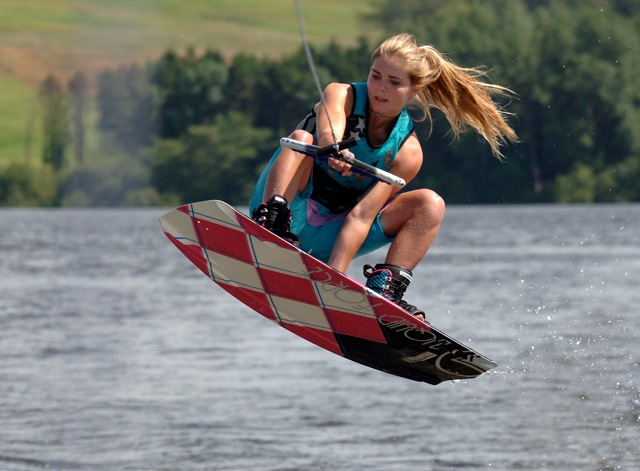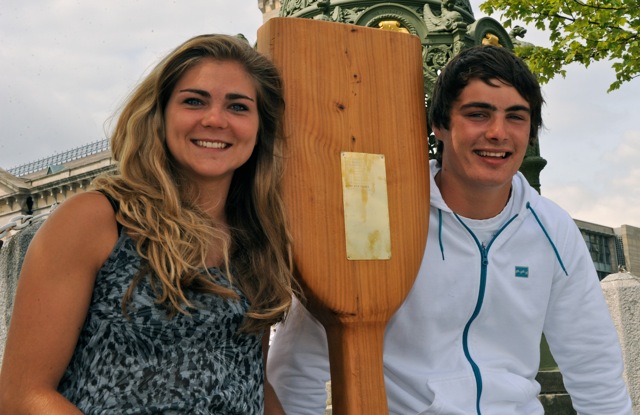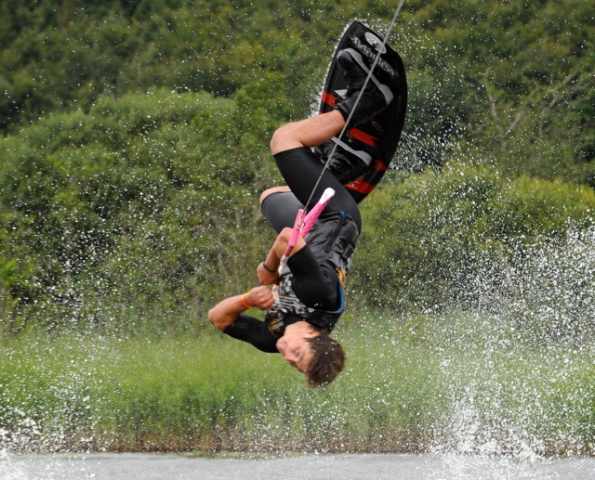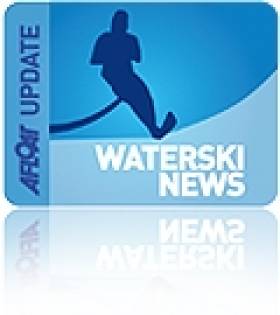Displaying items by tag: O'Caoimh
Two Irish Riders Achieve Major Wakeboard First
Wakeboard history has just been made by our two most talented Irish Team Wakeboard Riders. Against the very best Wakeboard Riders in the World and also against fierce international competition for these prestigious invitations, the International Waterski & Wakeboard Federation World Cup Selectors have invited Sian Hurst (Belfast) and David O'Caoimh (Dublin) to take part in the World Cup Series for the very first time. Congratulations to Sian and David on this major international recognition.
In the coming days, Sian and David will board their long haul flights from Dublin for Kuching City in Sarawak, Borneo. This will be the 31st World Cup Stop in this very successful Series. To date, it has travelled through London, Moscow, Alexandria, Singapore, Beijing, Doha, Chuncheon, Liuzhou and many other exotic venues, including Enniskillen ! The Series will finish this year in Linyi City in China immediately after the Sarawak Stop.

Sian
Sian and David have shown enormous progress in recent times. Their World Cup selection is very well deserved. They will join the current World Wakeboard Open Champions, Harley Clifford AUS and Raimi Merrit USA and will compete against a star studded line-up of 30 athletes from 20 countries. This will be by far the biggest challenge ever for any Irish Team Rider and they are well prepared for this extraordinary test.

Sian and David
Twenty one year old Sian Hurst recently took the Gold Medal at Chill & Ride Challenge in Germany, the Silver Medal in the World Championships in 2007 and the Bronze Medal at the European Championships in 2008. She has been the Irish National Wakeboard Champions from 2007 to 2011, in spite of a knee injury last year. Seventeen year old David O'Caoimh is the reigning Irish National Wakeboard Champion, and this year alone has taken the Gold Medal at UK Wakestock and a Silver Medal at the World Championships in Italy.

David
The Kuching City World Cup Stop will be a very special experience. It will form an important part of the historical Sarawak Regatta founded in 1872. Over 400 elaborate canoes, dragon boats and long boats will have 6,000 paddlers on board ! There will be a LIVE Webcast and for those who want to share in the thrills and performances of Sian and David, here is the Link to bookmark for Saturday and Sunday, September 17th/18th. Sarawak is GMT +8hrs.
http://247.tv/waterski/freestream/2011-sarawak-wakeboard-world-cup/ <http://247.tv/waterski/freestream/2011-sarawak-wakeboard-world-cup/>
One of the organisers is Irish Waterski & Wakeboard Federation President, Des Burke-Kennedy, and he will be reporting back here throughout the World Cup Series as usual.
After Sarawak, David has also been invited to move on to Linyi City in China for the final World Cup Stop of the year. Sian may yet get an invitation there if anybody falls off that Entry List.
Congratulations to both Sian and David - and good luck in this amazing World Cup experience.





























































